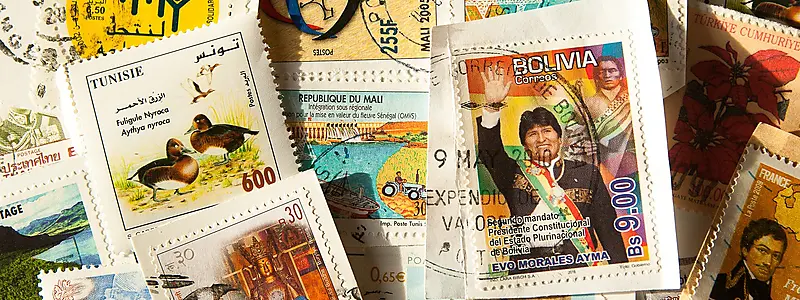Recently, I went to Blue Sky (which I do not do frequently) and witnessed all sorts of unkind slurs being directed at people who, for the most part, were trying to articulate reasonable opinions that contradicted the current leftist ideology. Out of curiosity, I conducted some informal observations, such as estimating how many times the term “Nazi” gets used on the platform. The answer: over twenty times per minute. Astounding and unfortunate.
The term “Nazi” is indeed one of the most powerful names in history. It evokes images of brutal genocides, and a regime fueled with domination, bloodshed, and hatred. It is a term that should make you contemplate deeply about what humanity is capable of and how important it is to always be on guard against fascism. Nonetheless, in the past few years, it has been replaced with such indifference that it no longer bears almost any value. These days, it is mostly carelessly tossed around like a casual term of disrespect to brand anyone whose views clash with or whose actions do not please somebody, even if those people are, using any useful mean, ordinary and nice people.
This misuse of the word “Nazi” is not only dangerous but also highly irresponsible. It dilutes the discussion by overlooking the atrocities committed in the past and undermines the value of serious dialogue, and poses a threat of valid accusations into jokes.
The “Nazi” Label Controversy
It is pretty simple to understand how we reached this point. Because of the outrage clickbait and polarisation that exist in the world, extreme language has become the norm. If those slogans are unsatisfactory for you, then we can just label a tax policy disagreement as “fascist”. Wouldn’t believe that someone could consider a tone-deaf tweet from a Kardashian to be propaganda? Well, that is “Nazi behavior” for you. Supporting a disliked candidate is basically signing a death certificate and will hence label you “literally Hitler”. The very notion of “Nazi” has turned from a word to a debate shut down tool to a word losing meaning and context.
But the blinding lack of logic here is calling everyone a Nazi and expecting someone to actually remain a Nazi. The term becomes nothing but an insult to the people who do not comprehend the weight that comes hand in hand with history. It strips the fallen from having any morality. While we are lured into that, we slowly put aside the memories of the losses of the world and real Nazis.
When we equate average individuals—flawed yet harmless—to Nazis, we risk underestimating history. There is a danger of producing a generation that interprets “Nazi” as merely another expression for “cold” or “authoritarian” rule, instead of understanding it as one of the most dreadful phases of human existence. This is not only unkind to the deceased victims of Nazism, but also damaging for the future who have to learn from the past.
The Devaluation of Constructive Dialogue
The historical context aside, the term “Nazi,” like so many other buzzwords, leads to the erosion of meaningful discourse. When every conflict is cast in hyperbolic apocalyptic phrasing, it automatically eliminates any possibility of nuance, compromise, or even basic understanding. What immigration discussion can we hope to have when a “Nazi” supports stricter immigration controls while a “traitor” opposes them? If every political adversary is a Hitler, how do we tackle real problems?
This type of propaganda does not only polarize; it also dehumanizes people. It transforms dissenting humans into monsters, making it easier to discard them or worse, to justify violating them. And as soon as we embark on that journey, we run the risk of becoming the very thing we say we hate.
The Acceptance of Polarity
Whatever the case may be, the most distasteful consequence of overusing the term “Nazi” is how it eases the acceptance of extremism. Your neighbor, coworker, or even political rival is labeled an ordinary citizen until the moment they decide to embrace extremist views. When that happens, they are immediately thrown into the category of non-thinking automatons or Nazis. Not only does this water down the term, but it also makes it impossible to notice and combat real extremism when it appears.
If everyone is a Nazi, then nobody is. If nobody is, we need to be careful we don’t miss the indicators of real authoritarianism. By crying wolf too frequently, we leave ourselves open to being unprepared for the time the real danger comes.
A Call for Reasonable Debate
We need to stop using “Nazi” while insulting someone as a casual phrase. It lies in our duty to remember “Nazi” as a historical term and only utilize it when it is absolutely necessary. That is, we should not shy away from opposing tyranny or standing up to social injustices. Not, we must do it with greater care and accuracy by using the most intense designs only for the most extreme pronouncements.
Words hold profound importance. They construct our world view and determine how we treat each other. When we become too liberal in their usage, the valuable essence of those words gets stripped away, which in turn leaves us without the ability to interact, comprehend, and recall.
Next time you’re about to call someone a Nazi, stop yourself. Think: Is this person really advocating for genocide, totalitarianism, the annihilation of entire groups of people, or are they simply representing someone you do not like? If the latter, it is best to find another way to disagree. Misusing words such as Nazi harms not only the power of these words, but also diminishes ourselves.
We should use the word Nazi with the gravity it rightfully deserves. Such a word should only be reserved to describe the true extremists, not people we have differences of opinion. Let’s be mindful of how we use words as they come with repercussions not only for individuals whom we speak about, but for society as a whole.










